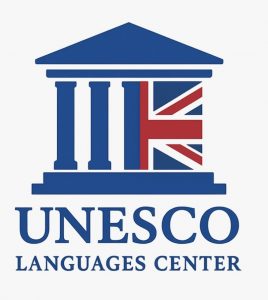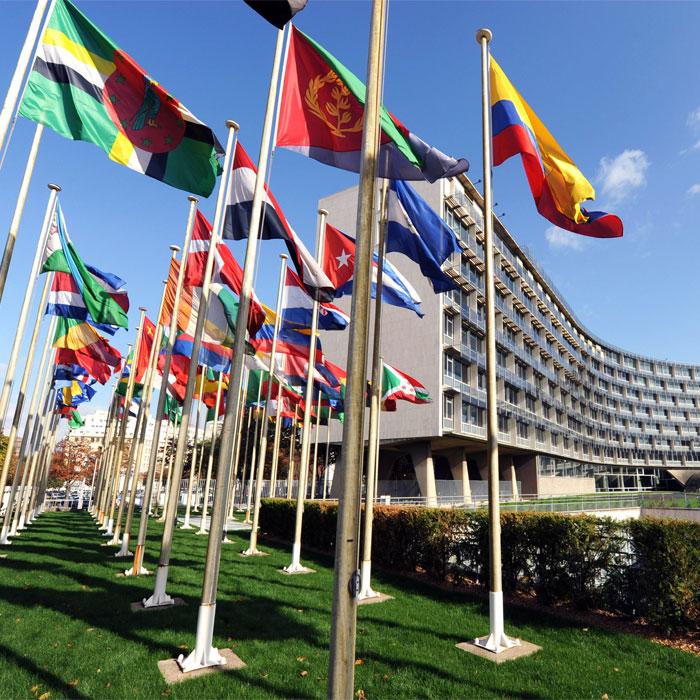
UNESCO LANGUAGES CENTER
INTERNATIONAL UNIVERSITY OF FUNDAMENTAL STUDIES (IUFS)
INTER-UNIVERSITY HIGHER ACADEMIC COUNCIL (IUHAC)
UNESCO LANGUAGE CENTER
Language Training & Certification Program
INTERNATIONAL REGULATIONS FOR FOREIGN LANGUAGE EDUCATION AND CERTIFICATION
- PREAMBLE
The InternaUNESCO LANGUAGE CENTER operates under the academic authority of the
International University of Fundamental Studies (IUFS) and the Inter-University Higher Academic Council
(IUHAC), guided by the global standards of UNESCO in promoting multilingual education, cultural
exchange, and preservation of linguistic diversity.
While not a formal partner, ULC is fully aligned with UNESCO’s principles on inclusive education, the
Decade of Indigenous Languages (2022–2032), and the promotion of intercultural understanding through
language.
- OBJECTIVES
- To deliver high-quality foreign language education in key to UNESCO Approved languages.
- To align with global frameworks such as the Common European Framework of Reference for
Languages (CEFR).
- To build bridges between cultures through language and communication.
- To establish a unified body of qualified language educators.
- To offer recognized certification to students and language professionals globally.
- LANGUAGES OFFERED
The following languages are taught and certified at the ULC:
- English
- Russian
- French
- Spanish
- Korean
- Chinese
- Italian
Each language program will be structured across the CEFR levels (A1 to C2) or equivalent international
standard levels.
- CENTER STRUCTURE
The Foreign Language Center shall consist of the following divisions:
- Academic & Curriculum Division
Oversees course content, quality, and global alignment.
- Teacher Accreditation & Development Division
Accredits and certifies all instructors teaching in the center.
- Certification & Examination Division
Manages testing, evaluation, and award of certificates.
- Administrative & Quality Assurance Division
Handles records, compliance, auditing, and international liaison.
- TEACHING STAFF AND TRAINER REQUIREMENTS
All language teachers must:
- Possess a recognized language degree or native fluency.
- Hold a professional teaching qualification (e.g., IELTS, TEFL, DELF, JLPT, TORFL, etc.).
- Complete IUHAC accreditation procedures.
- Engage in ongoing training and reviews.
A Global Language Educators Network (GLEN) will be maintained to connect trainers and promote
excellence.
- ADMISSION CRITERIA
- Applicants must be 16 years or older.
- Basic literacy in the native or prior language is required.
- Placement tests will determine the appropriate entry level.
- COURSE DURATION AND DELIVERY MODES
- Each CEFR level requires a minimum of 120 hours of instruction.
- Modes of delivery: In-person, Online, or Hybrid.
- Sessions may include:
o Reading and Writing
o Listening and Speaking
o Cultural Communication
o Applied Grammar and Vocabulary
- EXAMINATION AND EVALUATION
- A standardized final assessment is required at the end of each level.
- Evaluation includes all 4 skills and cultural comprehension.
- Minimum pass mark: 60% in each component.
- CERTIFICATION STANDARDS
Upon successful completion:
- Certificate of Language Proficiency (per CEFR level).• Diploma in Foreign Language Studies (after B2 or higher).
- All certificates are issued under the joint authority of IUFS and IUHAC with official serial numbers
and digital authentication.
Each certificate will include:
- Learner’s full name
- Language and level
- Duration of study and grade
- Date, signature, seal, and QR verification code
- INTERNATIONAL ALIGNMENT AND COOPERATION
The Center works in alignment with:
- UNESCO’s multilingual education principles
- UN’s Sustainable Development Goal 4 (SDG 4) – Quality Education
- The CEFR and equivalent international language benchmarks
- International embassies, universities, and cultural institutions
- PARTNERSHIPS AND IMMERSION
IFLC fosters global exposure through:
- Exchange programs and immersion visits with cultural centers
- Virtual classroom partnerships
- Cross-border teacher exchanges and joint certifications
- MONITORING, EVALUATION AND REVIEW
- Regular internal and external audits of quality and compliance
- Annual reporting to IUFS and IUHAC Academic Boards
- Curriculum review every 3 years, or sooner if required by international standards
- COMMITMENT TO UNESCO LANGUAGE PRINCIPLES
The IFLC is guided by the following UNESCO-aligned priorities:
- Promotion of inclusive and equitable language education
- Preservation and teaching of cultural identity and mother tongues
- Strengthening intercultural dialogue and peace education
- Supporting lifelong language learning and digital access14. IMPLEMENTATION DATE
These regulations are effective as of 01 July 2025 and apply to all current and future IFLC programs.
AUTHORIZATION
This policy is issued under the authority of:
Prof. Shanti Jayasekera
Director,
INTERNATIONAL UNIVERSITY OF FUNDAMENTAL STUDIES (IUFS)
INTER-UNIVERSITY HIGHER ACADEMIC COUNCIL (IUHAC)
